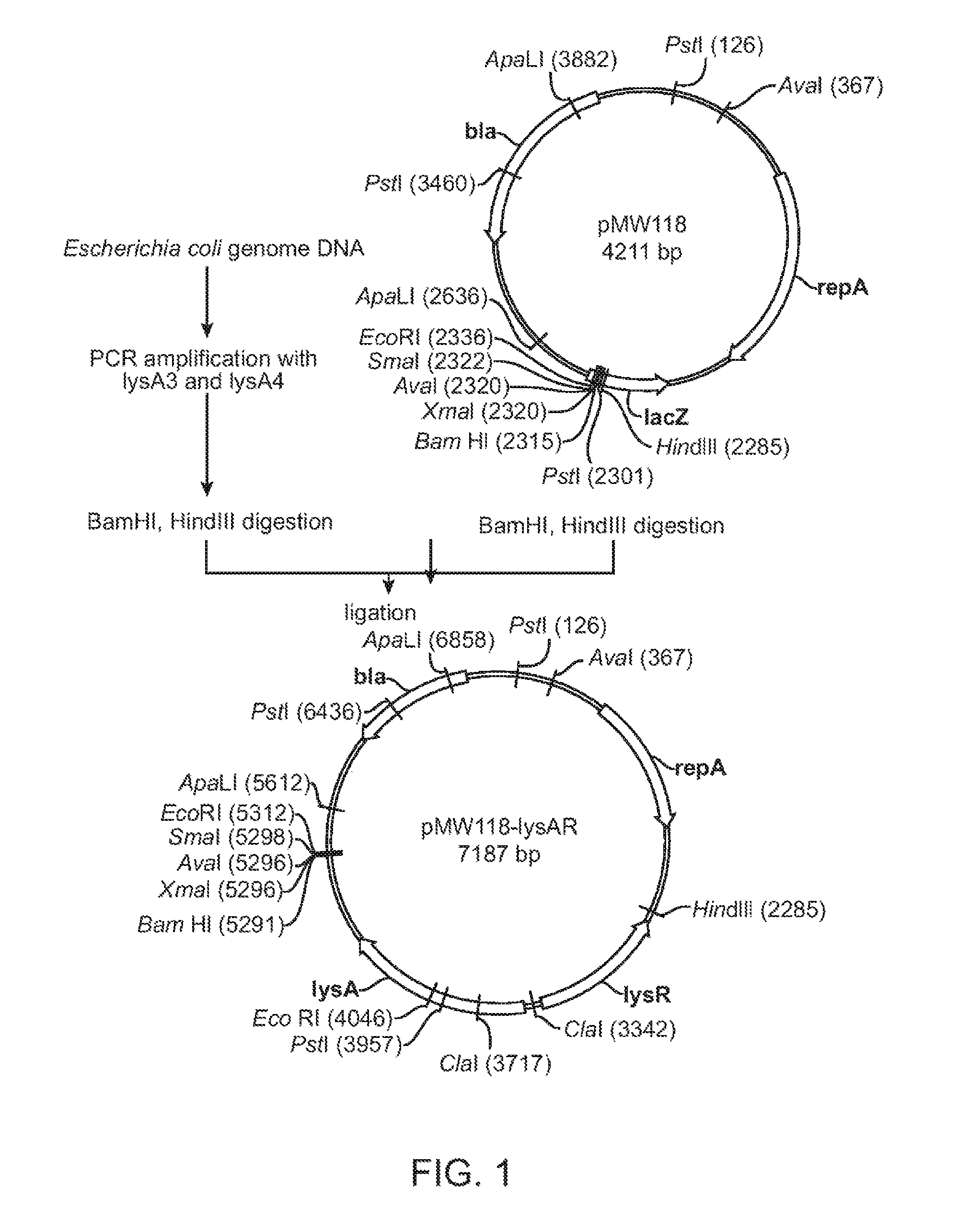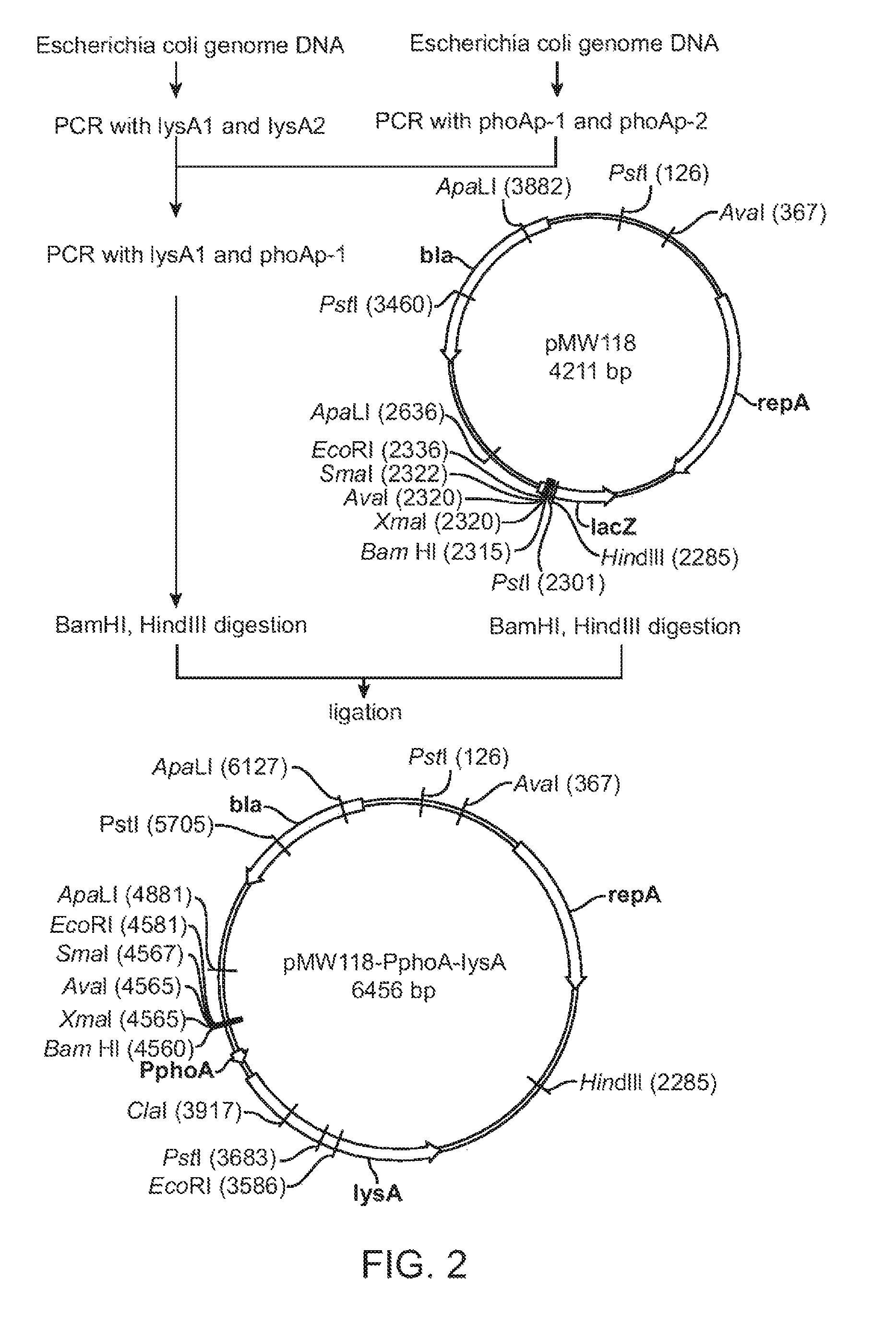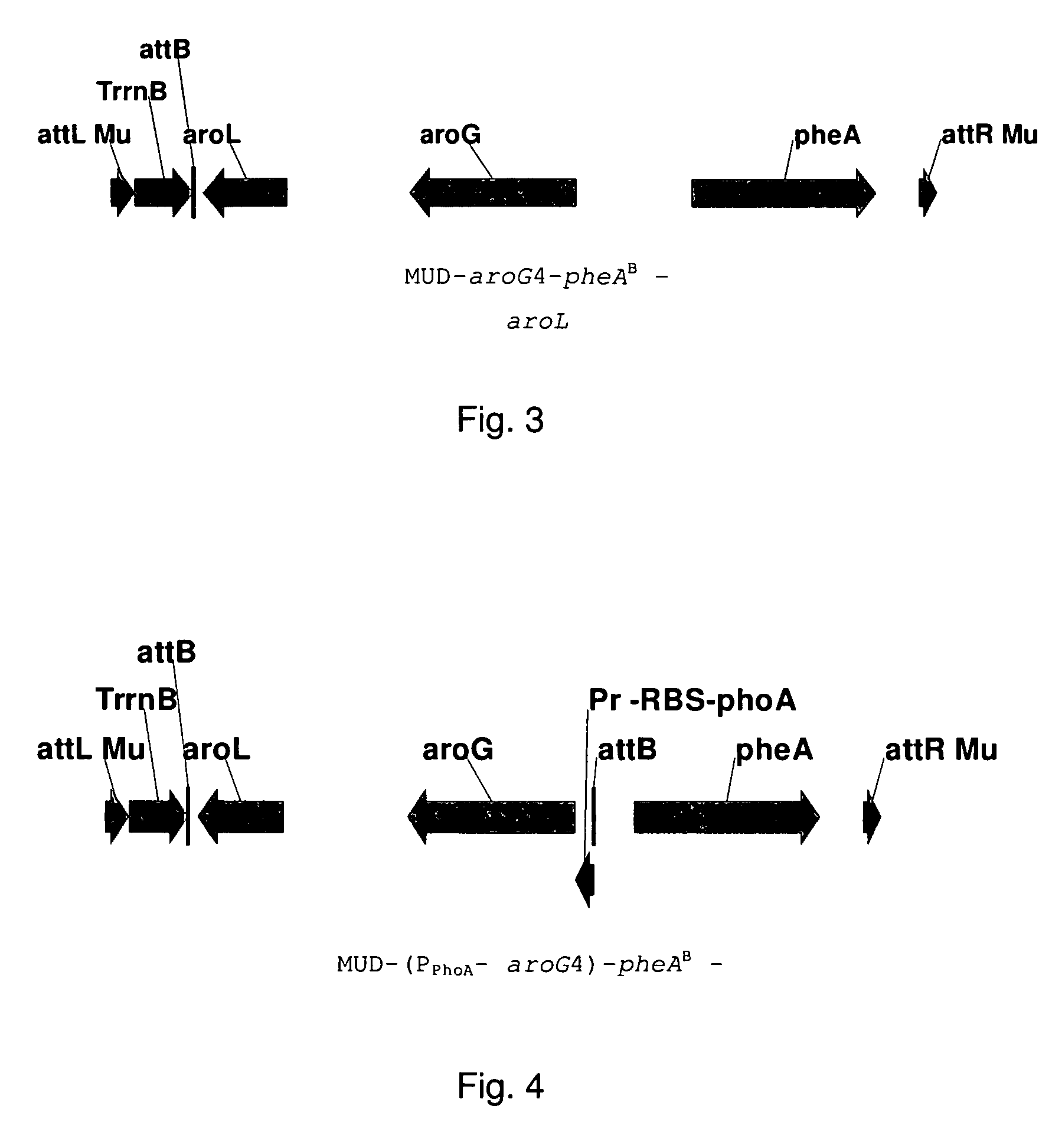Method for production of an L-amino acid
a technology of l-amino acid and production method, which is applied in the field of production method of lamino acid, can solve the problems of reducing the distribution of substrates to objective products, and achieve the effect of high yield and high productivity of an l-amino acid
- Summary
- Abstract
- Description
- Claims
- Application Information
AI Technical Summary
Benefits of technology
Problems solved by technology
Method used
Image
Examples
example 1
(1) Culture of the L-lysine-Producing Escherichia coli Strain Under Phosphorus Restricted Conditions
[0159]The lysine producing ability of the Escherichia coli strain WC196 (FERM BP-5252) was evaluated. The strain was cultured in a medium containing 40 g / L of glucose, 1 g / L of MgSO4 heptahydrate, 0, 0.125, 0.5 or 1 g / L of KH2PO4, 16 g / L of (NH4)2SO4, 10 mg / L of FeSO4 heptahydrate, 10 mg / L of MnSO4 tetra- or pentahydrate, 2 g / L of yeast extract and 50 g / L of CaCO3 in a 500 mL-volume Sakaguchi flask. The volume of the medium at the start of the culture was 20 mL, and the culture was performed at 37° C. with reciprocal shaking at a revolving speed of 120 rpm.
[0160]Everything used in the culture, including the medium, was sterilized by autoclaving prior to the start. During the culture, cell density, glucose concentration, and the amount of L-lysine which accumulated in the medium were measured. The cell density (OD600) was obtained by measuring turbidity at 600 nm with a spectrophotomet...
example 2
(1) Construction of L-phenylalanine-Producing Strain
[0179]E. coli strain MG1655ΔtyrAΔtyrR,PL-yddG was constructed in the same way as the previously-described E. coli strain BW25113 (WO03044192A1). The cassette MUD-aroG4-pheAB-aroL-CmR was integrated into the chromosome using the helper plasmid pHT10 (manufactured by Funakoshi). Then, the marker CmR flanked by attR and attL of phage λ was excised using the helper plasmid pMW-int-his (WO05 / 010175). The structure of resulting fragment, which is integrated into the bacterial chromosome, is shown in FIG. 3. The sequence of this fragment is shown in SEQ ID NO: 30. Genes aroG4 and pheAB are mutated alleles of the E. coli genes aroG and pheA, respectively, and encode enzymes resistant to Phe inhibition (EP 0488424B, JP03225597B, JP03060668B). All genes are under the control of their native promoters. In the case of the pheAB gene, the attenuator was deleted. The point of integration of the cassette was determined. Its coordinate (correspond...
PUM
| Property | Measurement | Unit |
|---|---|---|
| temperature | aaaaa | aaaaa |
| temperature | aaaaa | aaaaa |
| temperature | aaaaa | aaaaa |
Abstract
Description
Claims
Application Information
 Login to View More
Login to View More - R&D
- Intellectual Property
- Life Sciences
- Materials
- Tech Scout
- Unparalleled Data Quality
- Higher Quality Content
- 60% Fewer Hallucinations
Browse by: Latest US Patents, China's latest patents, Technical Efficacy Thesaurus, Application Domain, Technology Topic, Popular Technical Reports.
© 2025 PatSnap. All rights reserved.Legal|Privacy policy|Modern Slavery Act Transparency Statement|Sitemap|About US| Contact US: help@patsnap.com



